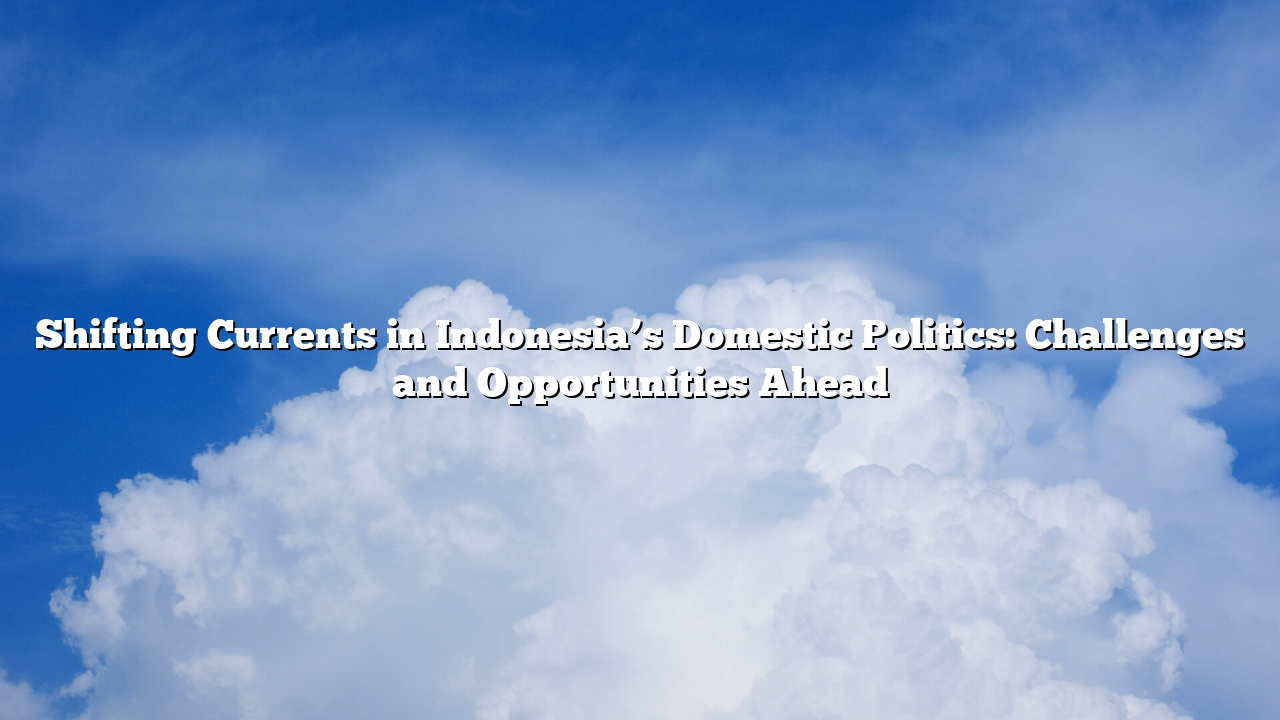Indonesia, the world’s third-largest democracy, stands at a pivotal moment in its domestic political trajectory. With the next general elections on the horizon, political parties, government institutions, and civil society are navigating a complex web of economic, social, and geopolitical Pattimura4d pressures. These dynamics are reshaping both the tone and substance of political discourse, raising questions about governance, representation, and national priorities.
One of the defining features of Indonesia’s domestic politics is its multi-party system, which fosters a broad spectrum of ideological and regional representation. While this diversity promotes inclusivity, it also creates challenges in achieving political consensus. Coalition governments, a near-constant in the post-Reformasi era, must balance competing agendas. As a result, policymaking often becomes a process of compromise rather than bold reform. The upcoming electoral cycle is expected to see these dynamics intensify, as parties position themselves to gain leverage in future coalition negotiations.
A significant issue dominating political debates is the government’s economic agenda. While Indonesia has enjoyed steady growth in recent years, concerns remain about income inequality, job creation, and regional development. The government’s ambitious infrastructure projects—ranging from new highways to the relocation of the national capital to Nusantara—have sparked both praise and criticism. Supporters argue these initiatives will stimulate long-term economic resilience, while critics warn of budgetary strain and potential corruption risks. This tension between development and fiscal prudence is likely to be a major talking point in the months ahead.
Domestic politics is also deeply intertwined with social and cultural debates. Issues such as education reform, healthcare access, and religious tolerance often become flashpoints for public discourse. In particular, the role of religion in politics remains sensitive. While Indonesia’s constitution enshrines secular governance, political actors often draw on religious identity to mobilize voters. This dynamic, while effective in rallying support, carries the risk of deepening polarization within the electorate. The ability of political leaders to navigate these sensitivities without undermining national unity will be a crucial test of statesmanship.
Corruption remains another pressing challenge. Indonesia’s Corruption Eradication Commission (KPK) has historically been a powerful force in holding public officials accountable, but recent legislative changes have sparked concerns about its independence. Transparency International’s reports continue to highlight public dissatisfaction with anti-corruption measures. Restoring public trust will require both institutional reforms and a political culture that values accountability over short-term gains.
The role of youth in domestic politics is also evolving. With over half of Indonesia’s population under the age of 35, young voters represent a formidable political force. Digital platforms such as Instagram, TikTok, and YouTube have become essential tools for political engagement, enabling candidates to reach millions instantly. This shift has democratized political communication, but it has also amplified the spread of misinformation. Addressing this challenge will require media literacy campaigns and stronger regulations to ensure that digital spaces promote informed debate rather than division.
In the background of these developments is the delicate balance between central and regional governance. Indonesia’s decentralization policy grants significant authority to provincial and local governments, fostering tailored solutions to local challenges. However, disparities in administrative capacity have led to uneven development outcomes. Strengthening coordination between the central and regional levels will be essential to ensuring that national policies translate into tangible benefits across the archipelago.
Looking ahead, Indonesia’s domestic politics will be defined by its ability to reconcile competing demands: growth versus sustainability, unity versus diversity, and modernization versus tradition. The nation’s democratic institutions, while young, have proven resilient in the face of turbulence. However, the road ahead will require not only policy innovation but also a political culture that values dialogue over division.
Ultimately, Indonesia’s political future will depend on the willingness of its leaders and citizens to embrace constructive engagement. The choices made in the coming years will shape not only the nation’s economic and social landscape but also its role as a democratic model in Southeast Asia. As the political season heats up, all eyes will be on how Indonesia charts its path forward—balancing ambition with inclusivity, and progress with integrity.
